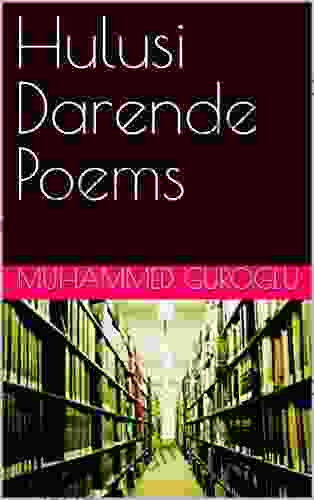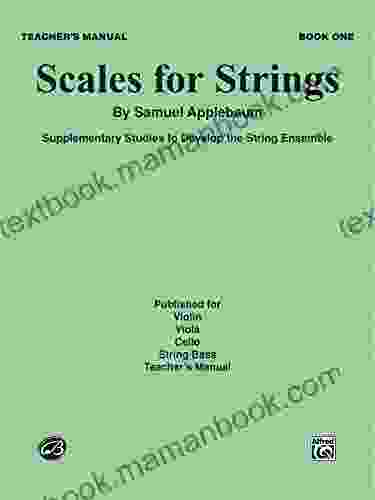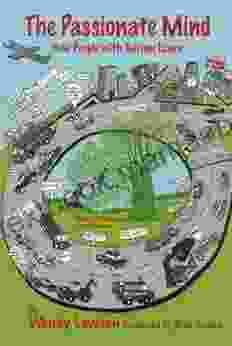The Passionate Mind: How People with Autism Learn

The Passionate Mind: How People with Autism Learn is a groundbreaking book that examines the unique learning styles of individuals with autism. The book is based on the author's own research and experiences, and it offers a new perspective on the way that people with autism learn and think.
4.5 out of 5
| Language | : | English |
| File size | : | 1505 KB |
| Text-to-Speech | : | Enabled |
| Screen Reader | : | Supported |
| Enhanced typesetting | : | Enabled |
| Word Wise | : | Enabled |
| Print length | : | 219 pages |
In The Passionate Mind, O'Connor argues that people with autism have a unique ability to focus intensely on their interests. This intensity can lead to incredible expertise in certain areas, and it can also be a source of great frustration when individuals are unable to find ways to channel their passions.
O'Connor also discusses the challenges that people with autism often face in social situations. He argues that these challenges are not due to a lack of empathy, but rather to a different way of processing social information. People with autism may have difficulty understanding social cues, and they may be more sensitive to sensory input.
The Passionate Mind is an important book that provides a new understanding of autism. O'Connor's research and experiences offer a valuable perspective on the way that people with autism learn and think. The book is a must-read for anyone who works with or cares for people with autism.
Chapter 1: The Passionate Mind
In the first chapter of The Passionate Mind, O'Connor introduces the concept of the passionate mind. He argues that people with autism have a unique ability to focus intensely on their interests. This intensity can lead to incredible expertise in certain areas, and it can also be a source of great frustration when individuals are unable to find ways to channel their passions.
O'Connor provides several examples of passionate minds in action. He tells the story of Temple Grandin, a world-renowned animal scientist who is autistic. Grandin has a deep passion for animals, and she has used her knowledge to design new and innovative ways to care for them. She is also a tireless advocate for people with autism, and she has helped to change the way that people think about the disorder.
O'Connor also discusses the challenges that passionate minds often face. He argues that these challenges are not due to a lack of empathy, but rather to a different way of processing social information. People with autism may have difficulty understanding social cues, and they may be more sensitive to sensory input.
Despite the challenges, O'Connor believes that passionate minds are a valuable asset to society. He argues that people with autism have the potential to make significant contributions to the world, and he urges us to find ways to support and nurture their passions.
Chapter 2: The Social World
In the second chapter of The Passionate Mind, O'Connor discusses the social world of people with autism. He argues that people with autism often have difficulty understanding social cues, and they may be more sensitive to sensory input. This can make it difficult for them to interact with others, and it can lead to social isolation.
O'Connor provides several examples of the challenges that people with autism face in social situations. He tells the story of a young boy with autism who was unable to understand why his classmates were laughing at him. The boy was simply being himself, but his classmates found his behavior to be strange and off-putting.
O'Connor also discusses the challenges that parents of children with autism face. He argues that parents often feel isolated and alone, and they may not know where to turn for help. He urges parents to seek out support groups and other resources, and he encourages them to be patient and understanding with their children.
Despite the challenges, O'Connor believes that people with autism can learn to navigate the social world. He argues that with the right support, people with autism can develop social skills and relationships that will help them to live full and happy lives.
Chapter 3: Education
In the third chapter of The Passionate Mind, O'Connor discusses the education of people with autism. He argues that traditional educational methods often fail to meet the needs of students with autism, and he calls for a more personalized approach to education.
O'Connor provides several examples of successful educational programs for students with autism. He tells the story of a school in California that uses a project-based learning approach. In this school, students work on projects that are tailored to their individual interests and needs. The students are given the opportunity to explore their passions in depth, and they are encouraged to develop their own learning goals.
O'Connor also discusses the importance of social skills training for students with autism. He argues that social skills training can help students to understand social cues and to interact with others more effectively. Social skills training can also help students to develop friendships and relationships.
O'Connor believes that with the right support, people with autism can succeed in school and go on to lead full and happy lives. He urges educators to be open to new and innovative approaches to education, and he encourages them to work with parents and students to develop individualized learning plans.
The Passionate Mind: How People with Autism Learn is a groundbreaking book that provides a new understanding of autism. O'Connor's research and experiences offer a valuable perspective on the way that people with autism learn and think. The book is a must-read for anyone who works with or cares for people with autism.
O'Connor concludes The Passionate Mind by arguing that people with autism have the potential to make significant contributions to society. He urges us to find ways to support and nurture their passions, and he believes that with the right support, people with autism can live full and happy lives.
4.5 out of 5
| Language | : | English |
| File size | : | 1505 KB |
| Text-to-Speech | : | Enabled |
| Screen Reader | : | Supported |
| Enhanced typesetting | : | Enabled |
| Word Wise | : | Enabled |
| Print length | : | 219 pages |
Do you want to contribute by writing guest posts on this blog?
Please contact us and send us a resume of previous articles that you have written.
 Top Book
Top Book Novel
Novel Fiction
Fiction Nonfiction
Nonfiction Literature
Literature Paperback
Paperback Hardcover
Hardcover E-book
E-book Audiobook
Audiobook Bestseller
Bestseller Classic
Classic Mystery
Mystery Thriller
Thriller Romance
Romance Fantasy
Fantasy Science Fiction
Science Fiction Biography
Biography Memoir
Memoir Autobiography
Autobiography Poetry
Poetry Drama
Drama Historical Fiction
Historical Fiction Self-help
Self-help Young Adult
Young Adult Childrens Books
Childrens Books Graphic Novel
Graphic Novel Anthology
Anthology Series
Series Encyclopedia
Encyclopedia Reference
Reference Guidebook
Guidebook Textbook
Textbook Workbook
Workbook Journal
Journal Diary
Diary Manuscript
Manuscript Folio
Folio Pulp Fiction
Pulp Fiction Short Stories
Short Stories Fairy Tales
Fairy Tales Fables
Fables Mythology
Mythology Philosophy
Philosophy Religion
Religion Spirituality
Spirituality Essays
Essays Critique
Critique Commentary
Commentary Glossary
Glossary Bibliography
Bibliography Index
Index Table of Contents
Table of Contents Preface
Preface Introduction
Introduction Foreword
Foreword Afterword
Afterword Appendices
Appendices Annotations
Annotations Footnotes
Footnotes Epilogue
Epilogue Prologue
Prologue Dave Hughes
Dave Hughes Franklin P Schargel
Franklin P Schargel Scarlett St Clair
Scarlett St Clair Stanley Aronowitz
Stanley Aronowitz Elaine L Wilmore
Elaine L Wilmore Ellen Koskoff
Ellen Koskoff Kristen Marshall James
Kristen Marshall James Jocelyn Sass
Jocelyn Sass Shirley Mckay
Shirley Mckay Margo Bond Collins
Margo Bond Collins Alex S Vitale
Alex S Vitale Marcia Talhelm Edson
Marcia Talhelm Edson Tom Standage
Tom Standage Robert Storey
Robert Storey Dave Ramsey
Dave Ramsey Leah Chase
Leah Chase Gavin Wick
Gavin Wick Philippa Perry
Philippa Perry Noel Streatfeild
Noel Streatfeild Roberto Calas
Roberto Calas
Light bulbAdvertise smarter! Our strategic ad space ensures maximum exposure. Reserve your spot today!

 Curtis StewartTabs And Scores With Short Tab Description And Chord Chart Ukulele Strum...
Curtis StewartTabs And Scores With Short Tab Description And Chord Chart Ukulele Strum...
 George R.R. MartinMatagorda: A Literary Journey into the Untamed Frontier with Louis L'Amour
George R.R. MartinMatagorda: A Literary Journey into the Untamed Frontier with Louis L'Amour Jarrett BlairFollow ·16.9k
Jarrett BlairFollow ·16.9k Yukio MishimaFollow ·12.8k
Yukio MishimaFollow ·12.8k Kyle PowellFollow ·18.1k
Kyle PowellFollow ·18.1k Jack ButlerFollow ·2.2k
Jack ButlerFollow ·2.2k Bobby HowardFollow ·18.9k
Bobby HowardFollow ·18.9k W.B. YeatsFollow ·12.7k
W.B. YeatsFollow ·12.7k Jett PowellFollow ·6.5k
Jett PowellFollow ·6.5k Juan RulfoFollow ·8k
Juan RulfoFollow ·8k

 Forrest Reed
Forrest ReedHulusi Darende's Poems: Unraveling the Lyrical Tapestry...
: A Journey into the Heart of Sufi...

 Gabriel Blair
Gabriel BlairAct of Terror: A Jericho Quinn Thriller
In the heart-pounding...

 Zadie Smith
Zadie SmithScales for Strings Teacher Manual: A Comprehensive Guide...
Scales are fundamental building blocks of...

 Hugo Cox
Hugo CoxMermaid (NHB Modern Plays) Polly Teale
The Mermaid NHB Modern Plays series, a...
4.5 out of 5
| Language | : | English |
| File size | : | 1505 KB |
| Text-to-Speech | : | Enabled |
| Screen Reader | : | Supported |
| Enhanced typesetting | : | Enabled |
| Word Wise | : | Enabled |
| Print length | : | 219 pages |












